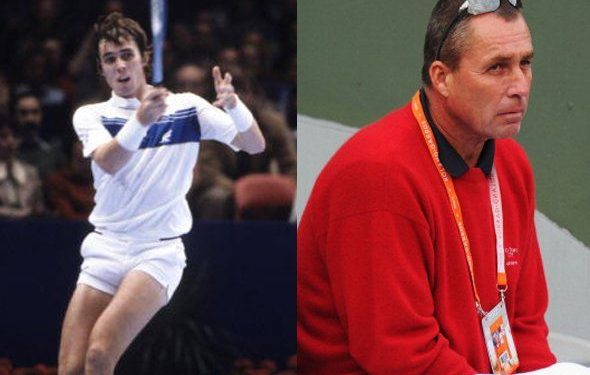What Does Retired Mean in Tennis?
In the world of tennis, the term “retired” holds a significant meaning that marks the end of a player’s professional career. When a tennis player declares themselves as “retired,” it signifies their decision to no longer compete at the highest level of the sport. This decision is often a result of various factors, such as age, injuries, or a desire to pursue other interests beyond the tennis court.
Unlike a temporary break or hiatus, retirement in tennis is a formal declaration made by the player. It is not a casual announcement but a conscious decision to step away from the competitive tennis circuit. This formal declaration is typically communicated through press conferences, official statements, or social media posts, allowing the player to express their gratitude to fans, reflect on their achievements, and bid farewell to the sport.
The reasons for retirement in tennis are diverse and deeply personal. Some players choose to retire when they feel they can no longer maintain the physical demands of the sport. The grueling training sessions, rigorous travel schedules, and constant strain on the body can take a toll, making retirement a necessary choice for players seeking to prioritize their long-term health and well-being.
Understanding Retirement in Tennis
Retirement as a Formal Decision
Retirement in tennis is not a casual announcement but a formal declaration made by the player. It is usually communicated through official channels, such as press conferences or social media statements. This declaration allows players to reflect on their achievements, express gratitude to their fans, and bid farewell to the competitive tennis circuit.
Reasons for Retirement
Retirement decisions in tennis are deeply personal and can stem from a range of reasons. Some players retire when they feel they can no longer maintain the physical demands of the sport, while others may choose to step away to focus on their personal lives or pursue different career opportunities. Injuries, declining performance, or simply a loss of passion for the game can also contribute to a player’s decision to retire.
Notable Retirements in Tennis History
Over the years, numerous tennis legends have retired, leaving an indelible mark on the sport. Players like Andre Agassi, Steffi Graf, Bjorn Borg, and Justine Henin have all chosen to retire at different stages of their careers, each with their own unique story and impact on the sport.

Impact of Retirement on Players and the Sport
Emotional and Mental Transition
Retirement can be an emotionally challenging period for tennis players. After dedicating their lives to the sport, they must adapt to a new reality where tennis is no longer their primary focus. This transition can lead to feelings of uncertainty, loss, and a need to redefine their identity outside of the competitive tennis world.
Legacy and Impact on the Game
Retired players often leave a lasting legacy in tennis. Their contributions to the sport, both on and off the court, shape its history and inspire future generations. Their achievements, records, and unique playing styles become part of the sport’s folklore, ensuring their impact endures long after retirement.
Transition to Other Roles
While retirement marks the end of a player’s competitive career, it opens doors to new opportunities within the tennis industry. Many retired players choose to stay involved in the sport as coaches, mentors, or commentators, sharing their expertise and insights with the next generation of players and fans.
Retirement Policies and Eligibility
ATP/WTA Retirement Policies
The Association of Tennis Professionals (ATP) and the Women’s Tennis Association (WTA) have specific retirement policies in place. These policies outline the criteria and procedures for players to officially retire from professional tennis and often involve formal communication with the respective organizations.
Age and Ranking Criteria
Retirement eligibility in tennis is not solely determined by age. Players must consider their physical condition, performance, and personal aspirations when making the decision. While some players retire in their late thirties or forties, others may continue competing well into their fifties. The ranking of a player and their ability to maintain a certain level of competitiveness also influence retirement considerations.
Life After Retirement
Retirement from professional tennis opens a new chapter in a player’s life. While it may take time to adjust to a different routine, many players find fulfilling careers and make significant contributions in various fields.
Coaching and Mentoring
Retired players often become coaches or mentors, passing on their knowledge and experience to the next generation. They provide guidance, technical expertise, and emotional support to aspiring players, helping them navigate the complexities of the sport and achieve their potential.

Commentating and Broadcasting
Some retired players find a new home behind the microphone as commentators or analysts. Their deep understanding of the game and unique insights make them valuable assets in television broadcasts, where they provide commentary, analysis, and expert opinions during matches and tournaments.
Business Ventures and Philanthropy
Retired players often explore business ventures related to tennis, such as starting their own academies, endorsing products, or investing in the development of the sport. Additionally, many players actively engage in philanthropic endeavors, using their platforms and resources to make a positive impact on society.
Hall of Fame and Legacy Recognition
For exceptional players, retirement often leads to induction into the Tennis Hall of Fame or similar prestigious institutions. These honors recognize a player’s outstanding career and contributions to the sport, ensuring their legacy is preserved for future generations.
Conclusion
Retirement in tennis signifies the end of a player’s professional career, but it is also the beginning of a new journey. While retirement can be emotionally challenging, it offers opportunities for players to transition into other roles within the tennis world and make lasting contributions to the sport they love.
FAQs
What age do tennis players typically retire?
The retirement age for tennis players varies widely. Some players retire in their late thirties or forties, while others continue competing well into their fifties. The decision to retire depends on several factors, including physical condition, performance, and personal aspirations.
Can retired players make a comeback?
Although rare, retired players can make comebacks to professional tennis. However, returning to the sport at a competitive level requires significant dedication, training, and a strong desire to compete again.
Do retired players still participate in exhibition matches?
Yes, many retired players participate in exhibition matches and events. These matches allow fans to see their favorite retired players in action once again and provide an opportunity for retired players to showcase their skills in a more relaxed setting.
How do retired players contribute to the development of tennis?
Retired players contribute to the development of tennis in various ways. They often become coaches, mentors, or ambassadors for the sport, sharing their knowledge and experience with aspiring players. Additionally, many retired players invest in tennis academies, endorse products, and engage in philanthropic activities to support the growth and accessibility of the sport.
Is retirement mandatory for professional tennis players?
Retirement is not mandatory for professional tennis players. The decision to retire is personal and depends on the individual player’s circumstances, goals, and physical capabilities. Some players choose to retire early, while others continue playing well into their later years.

Hi there! My name is Hamza Rahim and I’m a seasoned tennis player with a passion for helping players of all levels to improve their game. With great experience. I have developed a deep understanding of the sport’s techniques and strategies. I will help tennis lovers to select the best tennis racquets, and balls and also share tips to become the best player on the ground. I hope from my information you will become a great tennis player as well as in your country and also worldwide. And my goal is to provide you with the best information about tennis.











